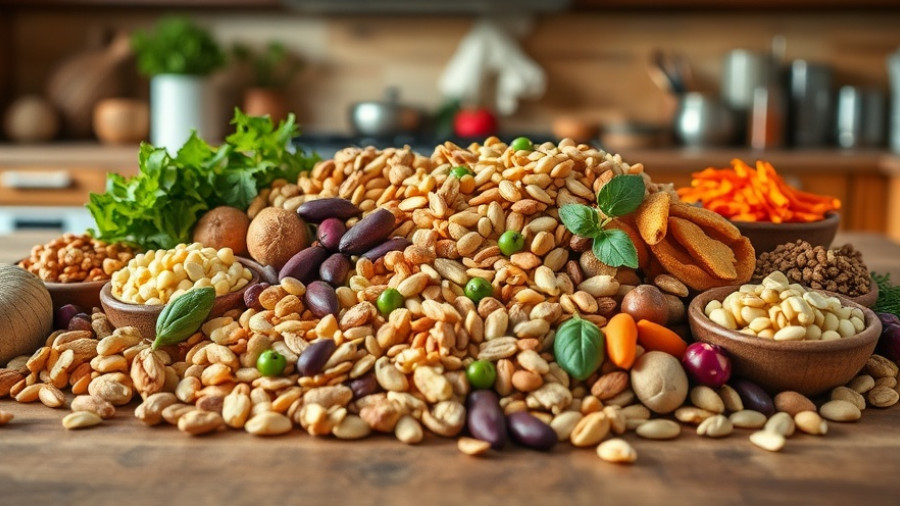
Understanding the Importance of Protein for Bone Health
Maintaining strong bones is crucial, especially as we age. Protein plays an essential role in supporting bone health, accounting for a significant portion of bone structure. According to the British Heart Foundation, adults should aim for 0.75 grams of protein per kilogram of body weight daily. This equates to approximately 45 grams for a woman weighing 60 kilograms and about 55 grams for a 73-kilogram man. Ultimately, a balanced diet, coupled with physical activity, is vital for bone strength.
Top Plant-Based Proteins for Strong Bones
If you’re transitioning to a plant-based diet, it’s essential to fill your plate with protein-rich foods that promote bone health. Here are some of the best options:
- Seitan: Made from wheat gluten, seitan contains about 21 grams of protein per serving and has a chewy texture, making it a popular meat substitute. It's low in fat and high in selenium.
- Tofu: This soy-based product is versatile and rich in essential amino acids. A block of tofu offers 15.5 grams of protein and is especially beneficial when fortified with calcium.
- Lentils: Budget-friendly and nutrient-packed, lentils provide approximately 17.9 grams of protein per cup, making them an excellent choice for plant-based diets.
- Black Beans: These beans not only boost protein intake but are also a great source of fiber, delivering about 15.2 grams of protein per cup.
- Chickpeas: With about 14.5 grams of protein per cup, chickpeas can be easily incorporated into dishes or made into hummus, adding flavor and nutrition.
Calcium, Vitamin D, and Their Role in Bone Health
While protein is vital, it’s equally important to pair it with other nutrients such as calcium and vitamin D. Calcium helps ensure proper bone mineralization, while vitamin D aids in calcium absorption. Foods rich in these nutrients can greatly enhance bone density and overall health. A study from the American Society for Nutrition highlights that a shift toward a more plant-based diet may reduce calcium and vitamin D intake, potentially increasing the risk of osteoporosis.
Balancing Your Plant-Based Diet for Optimal Bone Health
Adopting a plant-based diet doesn’t mean sacrificing bone health. Although plant sources of protein often lack some essential amino acids, they can be combined effectively throughout the day. For instance, pairing legumes with grains creates a complete protein profile, similar to that of animal proteins. Patience and planning are key; focusing on a variety of these foods will ensure you receive adequate nutrients for strong bones.
Future Perspectives: The Evolution of Plant Proteins in Nutrition
As interest in plant-based diets grows, ongoing research may further clarify the impact of consuming various protein sources on bone health. Currently, studies indicate varying effects on bone metabolism between animal-based and plant-based proteins. This highlights the need for individualized dietary recommendations tailored to maintain bone integrity.
Final Thoughts: Take Action for Your Bone Health
By embracing a balanced plant-based diet, you can nourish your body while protecting your bones. Remember to include a variety of protein sources, complement them with calcium-rich foods, and consider vitamin D supplementation if needed. It’s all about making informed choices that prioritize your health and well-being!
 Add Row
Add Row  Add
Add 




Write A Comment